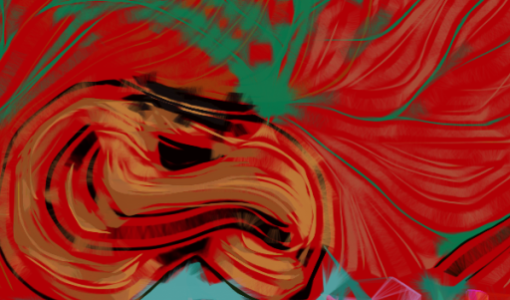Ya Taleen, performed by Dana Salah An old song from the Galilee, it’s believed that Palestinian women used to sing it as they visited their loved ones in prison. Through the seemingly confusing lyrics, the women would convey subversive messages, perhaps informing their loved ones that they would soon be liberated by freedom fighters. This…
Featured
Dreaming Against Reality
It’s been more than a year since my last blog post. Like most of you, I have been aghast at the state of the world . Seeing the news about Venezuela, on top of the cold front (ICE) in the Untied States, the war-mongering towards Iran and a silenced genocide in Gaza, I have found…
